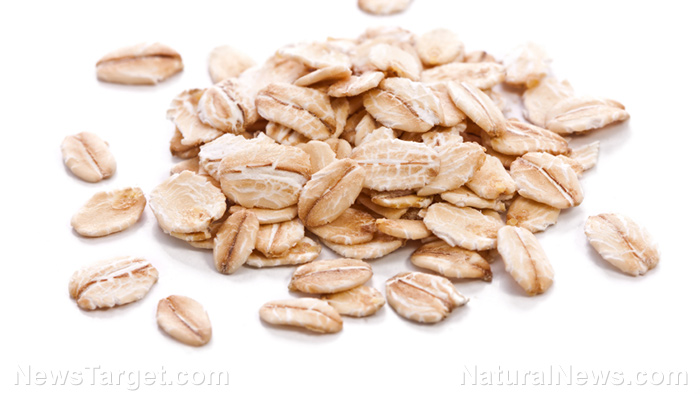Melatonin supplementation can help prevent liver damage in obese individuals, says study
03/25/2019 / By Michelle Simmons

Melatonin is widely known as a sleep hormone produced by the pineal gland. As researchers continue to study this naturally occurring compound, they discovered that it offers other health benefits. In a recent study, researchers at Mahidol University in Thailand found that supplementing with melatonin can also protect against obesity and its complications, such as liver damage.
Obesity has been known to trigger changes in protein expression in various organs, and melatonin has been found to prevent or reduce such protein changes in chronic diseases. However, melatonin’s effects on proteins have not yet been fully understood in obesity. Therefore, the researchers evaluated the effect of melatonin on plasma protein profiles after rats were fed a high-fat diet to induce obesity. They hypothesized that melatonin would reduce abnormal protein expression in obese rats.
After 10 weeks of feeding rats with a high-fat diet, the animals exhibited increased body weight and fat accumulation. The rats also exhibited increased blood sugar levels. These increases indicate that obesity caused the rats to be in a prediabetes-like state. In addition, the 10-week high-fat diet feeding led to changes in 12 proteins, which were associated with the development of liver problems, such as cirrhosis, thrombosis, and inflammation – all of which contribute to liver damage or liver cell death.
However, with the supplementation of melatonin, the amplitude of these protein changes was reduced. This, in turn, reduced the severity of diet-induced obesity, suggesting a preventive effect. From these findings, the researchers concluded that supplementing with melatonin helps reduce protein changes that are related to the progression of obesity and its complications, such as liver damage and inflammation. (Related: Melatonin effectively controls weight gain, obesity and associated heart disease.)
Melatonin fights obesity on two levels
An earlier study, which was published in the Journal of Pineal Research, also found that consumption of melatonin could help prevent weight gain. Researchers from the University of Granada, the University Hospital La Paz, and the University of Texas examined the effects of melatonin by administering the hormone to a group of diabetic fatty rats.
They found that taking melatonin fights obesity on two levels. First, it increased the amount of brown adipose tissue (BAT), which is the “good fat” that uses energy instead of storing it. As a result, this reduced the amount of harmful white visceral fat in the abdominal region of the rats. Second, the researchers found that the hormone has a positive effect on thermogenesis, which is the process that the body uses to burn calories and produce heat.
Ahmad Agil Abdalla, one of the researchers and a professor at the University of Granada, explained that these effects were observed in the rats, so the outcomes might not be the same in humans. However, he did suggest that melatonin treatment could be used as a complementary approach to weight management, combining it with a calorie-restricted diet plan and regular physical activity. Moreover, Abdalla added that exercise is ideal for people who live in cold environments because cold temperatures trigger thermogenesis, leading to increased calorie expenditure.
Obesity in numbers
The findings of the two studies have important implications because of the dramatic impact obesity currently has on public health. Despite being almost always preventable, the number of obese people in the world has nearly tripled between 1975 and 2016. In 2016, 39 percent — or over 1.6 billion adults — were overweight, and 650 million of these were obese. In the U.S. alone, nearly 36 percent of American adults are obese. Furthermore, obesity is a major risk factor for diseases, such as cardiovascular diseases like heart disease and stroke, diabetes, musculoskeletal disorders, and some cancers. Some of these are among the leading causes of death worldwide.
Read more news stories and studies on preventing the progression of obesity and its health complications by going to FightObesity.news.
Sources include:
Tagged Under: alternative medicine, Diets, high-fat diet, inflammation, Liver, liver damage, liver health, melatonin, natural cures, natural healing, natural medicine, natural remedies, obesity, Proteins, research, science, slender, supplements, weight, weight gain, weight management


















